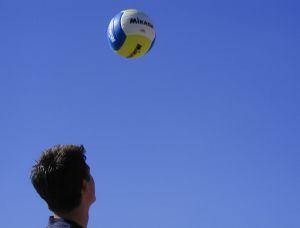Good sportsmanship is one of the most important lessons that we can learn from competition. Knowing that our success in sports is in learning to play the game with a certain attitude, rather than in whether we win or lose, and transferring that knowledge to other tasks and activities is an important part of the battle when it comes to learning to succeed.
It builds skills that all children and even some adults need to have. So how do you teach children the meaning of good sportsmanship, let alone the practice of it, in today's society where messages and examples of poor and even downright bad sportsmanship abound?
The key is always in how you choose to communicate with your child on the subject. If you model and teach good sportsmanship, your child will be able to learn it from you and you will be able to hold them to a higher standard.
Be a Good Sport
The first role model that your child will have for the proper behavior in games and sports is you. Make sure that the impression that you make is a good one. Show your child that you enjoy sports and games for themselves and not just for the prospect of having your chosen team win.
Teach your children to admire skill and performance no matter who delivers it, and even suggest to them that it is okay to root for both teams if they so choose. You can also begin to introduce good sportsmanship rules with the games and sports that you and your child play together at home. Help them learn how to behave when playing, winning, or losing before you send them out into the world to display those skills to others.
Raise a Good Sport
When you enroll your child in team sports, try to choose a team and a coach that share your ideas about good sportsmanship. A good coach will make their expectations of conduct clear early on in the season. Even if they don't, you should make sure that your child understands your expectations before they ever go on the field. Don't stop there, however. Keep looking for teachable moments that you can use to discuss good sportsmanship with your child.
They should be easy to find and you can use them as a jumping off point for the kinds of open-ended questions that are designed to get your child thinking about the issues involved. Finally, make sure that you monitor your child's behavior and language both on and off the field. Your child's coach may not call them on something that you find inappropriate, but that does not mean that you can or should let the issue pass by.
Instead, make a point of discussing it with your child at home so that you can make it clear that their behavior was not okay. It may seem like a lot of work to go to in order to make something fun, but the lessons your child is learning will serve them throughout their life.
Teaching Humility is Important, Too
Many parents focus on keeping their child from being a sore loser, forgetting about teaching them to be a good winner in the process. Winning with humility is just as important as being composed in defeat. Teach your child that it's okay to be proud of their accomplishments, but it isn't okay to brag about them or shove them in others' faces.
Arrogance is a problem that many people face. With the right help, your child can avoid falling into this pitfall. It's up to you to teach them how to maintain balance between having confidence and being arrogant. Always remind them that they are not perfect just because they're good at something, and that there's always room to improve.
When you praise your child for their achievements in sports, make sure to keep it at an appropriate level. Let them know you're proud and celebrate their achievements, but don't make them think they're light-years ahead of their peers. When your child makes mistakes, help them learn from them so they can grow and move on. Mistakes will help keep your child level-headed.
Finally, continue to set a good example for them. If you play sports yourself, act appropriately when you win. Don't trash-talk the other team, brag about yourself, or otherwise act arrogantly. If you watch sports as a fan, be respectful to other fans and other teams' players. A little rowdy-ness and fun is okay, but don't take it too far.
